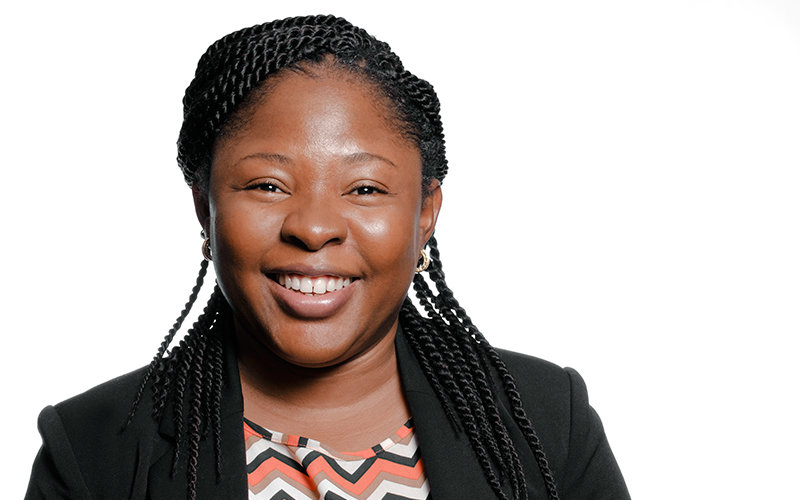
Wura Jacobs likes to say she took the scenic route to becoming a researcher and educator.
Joining Cal State Fullerton as an assistant professor of health science this fall, Jacobs received a doctorate in health education from Texas A&M University, a master’s degree in science and technology journalism, and a bachelor’s degree in biochemistry from Ladoke Akintola University of Technology in Nigeria.
What inspired you to go into the field of health science?
I have always loved health science and was fascinated by the workings of the human body at the cellular level, so I ended up pursuing a degree in biochemistry. I enjoyed the lab work, but was curious about the individual whose specimen (e.g. blood) I was working on. Many times, I would try to see if I could connect or make sense of an individual’s assay results and their social or personal characteristics. At that point I realized that I would like to learn more about the determinants of health and wellbeing at a much broader level.
What are your research interests?
My research interests lie in the area of adolescent health and behavior outcomes, particularly at the intersection of social networks and its composition, substance use and chronic disease prevention through protective health behaviors. My research focuses on gender differences in social network composition and influences, family health history knowledge and risk perceptions, and how these factors play into adolescents’ health outcomes.
How do you engage students in your classes and/or research?
I try to get students to interact and learn from one another, not just me. I encourage students to reflect on the content and think of ways they can apply what we’re learning about to their personal lives or their work.
What changes do you envision in your field five years from now?
With the world becoming incredibly smaller, people living longer and infectious diseases re-emerging, the future of the field lies in keeping pace with these changes and changing risks. There’s a need to develop new models for delivering health promotion information, leveraging technology to increase life expectancy, further reducing alcohol and tobacco use, and emphasizing the notion that it is society’s responsibility to promote healthy environments. We all benefit when people are healthier.
Name one thing you do to stay healthy.
I like to go on walks, journal [reflective writing], and read novels and non-academic related things.
See the complete list of new tenure-track faculty members joining CSUF this fall.